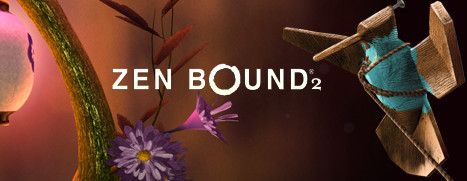Humble Bundles come to Android
Feb. 6th, 2012 12:32 pmIn a fit of serendipitous timing, the day after I wrote my last post regarding Mobile Apps as a complement to PC gaming, a new indie Humble Bundle has surfaced specifically aimed at Android Phones*.
It's a small bundle this time with only 4 games on offer, some of which are quite old now to boot, but the idea is that whilst there's versions for Windows, Mac and Linux in there as well as Android, the point of it is as an introduction to Humble Bundles for mobile platforms. The games included in it are available directly from the Android Market as well.

The games one gets with this particular bundle are:-
World of Goo - a physics puzzler that's become a well-known classic over the last few years
Edge - another physics puzzler of a completely different sort
Osmos - yet another physics puzzler of yet another different type with a lovely soundtrack
Anomaly - a tactical squad strategy/tower attack game that plays in realtime




World of Goo is the bonus game for paying over the average and whilst it's old hat now, it's a game that suits a mobile platform very well. You control balls of black goo that buzz around a framework you pull and stretch into shape from said balls of goo, the aim being to get some of them from the starting point to an end point to progress to the next level. Think standard bridge builder with a squishy theme.
Edge comes in two varieties, regular and EX (extended). The extended version is more like Edge 1.5 with additions to the gameplay, levels and a graphics engine update. The aim is to flip a cube around a puzzle-maze, collecting flashing blocks ont he way and not falling off the edges. It's a cute game but I found the controls to be very inconsistent: moving your finger 2 millimetres on screen might make the cube barely wobble, or it might send it screaming off at top speed to plung over the edge in a blur.
Osmos comes in HD format and is another older game, this time with the focus being on patience and attempting to be a relaxing game. You're an amoeba-like lifeform whose main goal is to absorb smaller amoebas to grow whilst not being absorbed by bigger amoebas. There's all sorts of obstacles such as evil amoebas that hunt you, 'food' that is harmful, currents in the medium you're floating through and so on.
Anomaly is also in HD format and runs with the age-old theme of alien incursions on Earth (in this case in Baghdad, which is an... interesting choice of city, especially given your rescue squad is British). Aliens towers have sprouted up and you're assigned resources to purchase vehicles that will follow a course you plot beforehand to blow them up. Meanwhile you use various special effects to help them, hinder the towers and grab power replenishments before the next threat looms.
Overall
I've found the games are good to while away time when travelling, and Anomaly looks like it could give Ghost Recon on the 3DS a run for it's money in terms of hours of gameplay, though it burns battery fast. Osmose is a bit jumpy on the difficulty curve, with some later stages being significantly easier than some of the early ones. Edge's control issues are proving to be awkward to get over for me, and World of Goo is OK but I never got into it on the PC and it doesn't look like that will change any time soon.
On a technical note, once the bundle is purchased you pick which versions of the games to download where, such as the windows versions to a Windows PC then the android APKs to your phone, either directly or through another device with internet. My phone's native browser had issues with the download of the APK from the Humble Bundle site and in the end I grabbed them on my PC and Dropboxed over. Your mileage may vary.
* As a note, the games can be found seperately for iDevices as well.
It's a small bundle this time with only 4 games on offer, some of which are quite old now to boot, but the idea is that whilst there's versions for Windows, Mac and Linux in there as well as Android, the point of it is as an introduction to Humble Bundles for mobile platforms. The games included in it are available directly from the Android Market as well.

The games one gets with this particular bundle are:-
World of Goo - a physics puzzler that's become a well-known classic over the last few years
Edge - another physics puzzler of a completely different sort
Osmos - yet another physics puzzler of yet another different type with a lovely soundtrack
Anomaly - a tactical squad strategy/tower attack game that plays in realtime


World of Goo is the bonus game for paying over the average and whilst it's old hat now, it's a game that suits a mobile platform very well. You control balls of black goo that buzz around a framework you pull and stretch into shape from said balls of goo, the aim being to get some of them from the starting point to an end point to progress to the next level. Think standard bridge builder with a squishy theme.
Edge comes in two varieties, regular and EX (extended). The extended version is more like Edge 1.5 with additions to the gameplay, levels and a graphics engine update. The aim is to flip a cube around a puzzle-maze, collecting flashing blocks ont he way and not falling off the edges. It's a cute game but I found the controls to be very inconsistent: moving your finger 2 millimetres on screen might make the cube barely wobble, or it might send it screaming off at top speed to plung over the edge in a blur.
Osmos comes in HD format and is another older game, this time with the focus being on patience and attempting to be a relaxing game. You're an amoeba-like lifeform whose main goal is to absorb smaller amoebas to grow whilst not being absorbed by bigger amoebas. There's all sorts of obstacles such as evil amoebas that hunt you, 'food' that is harmful, currents in the medium you're floating through and so on.
Anomaly is also in HD format and runs with the age-old theme of alien incursions on Earth (in this case in Baghdad, which is an... interesting choice of city, especially given your rescue squad is British). Aliens towers have sprouted up and you're assigned resources to purchase vehicles that will follow a course you plot beforehand to blow them up. Meanwhile you use various special effects to help them, hinder the towers and grab power replenishments before the next threat looms.
Overall
I've found the games are good to while away time when travelling, and Anomaly looks like it could give Ghost Recon on the 3DS a run for it's money in terms of hours of gameplay, though it burns battery fast. Osmose is a bit jumpy on the difficulty curve, with some later stages being significantly easier than some of the early ones. Edge's control issues are proving to be awkward to get over for me, and World of Goo is OK but I never got into it on the PC and it doesn't look like that will change any time soon.
On a technical note, once the bundle is purchased you pick which versions of the games to download where, such as the windows versions to a Windows PC then the android APKs to your phone, either directly or through another device with internet. My phone's native browser had issues with the download of the APK from the Humble Bundle site and in the end I grabbed them on my PC and Dropboxed over. Your mileage may vary.
* As a note, the games can be found seperately for iDevices as well.
















